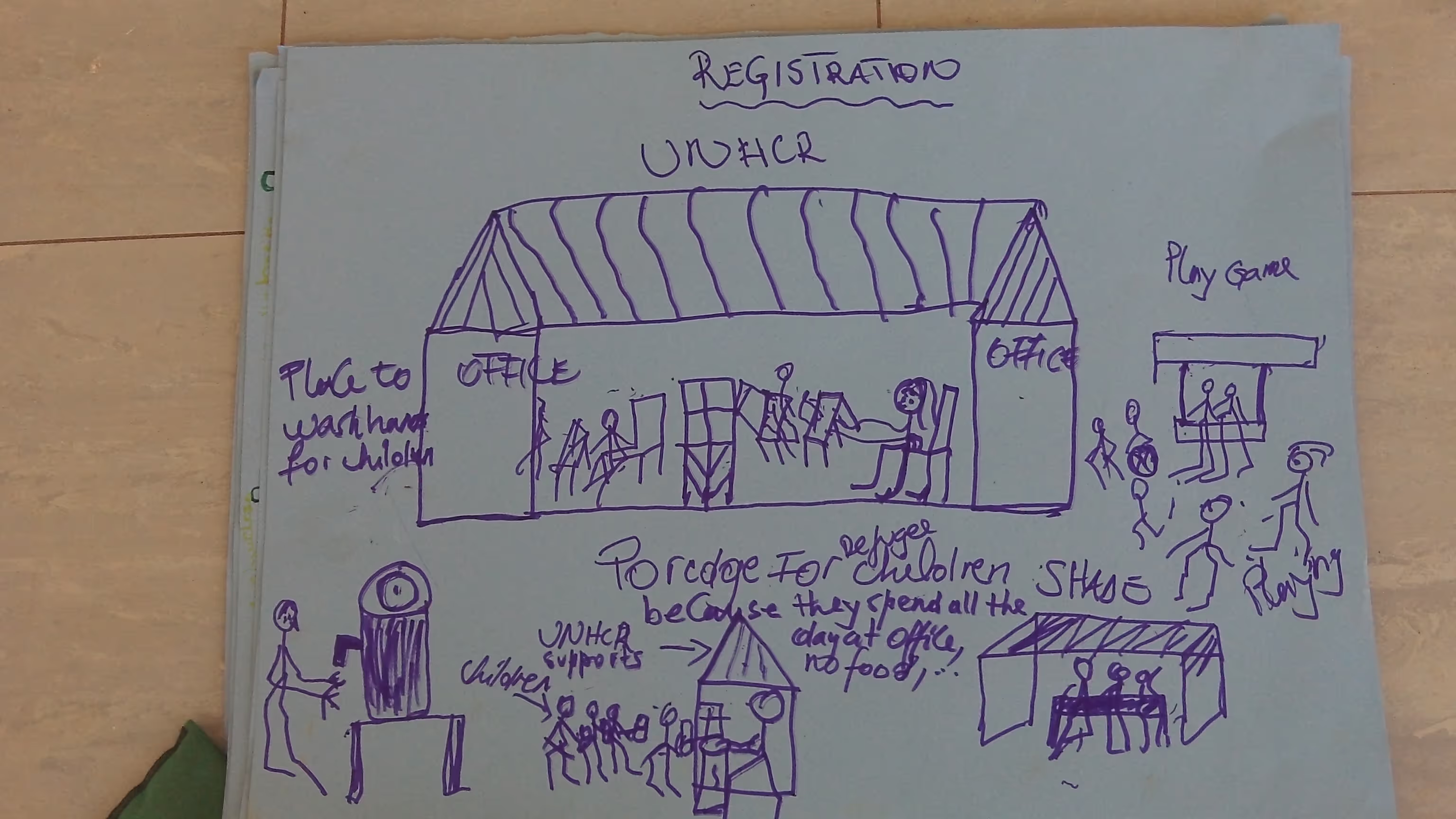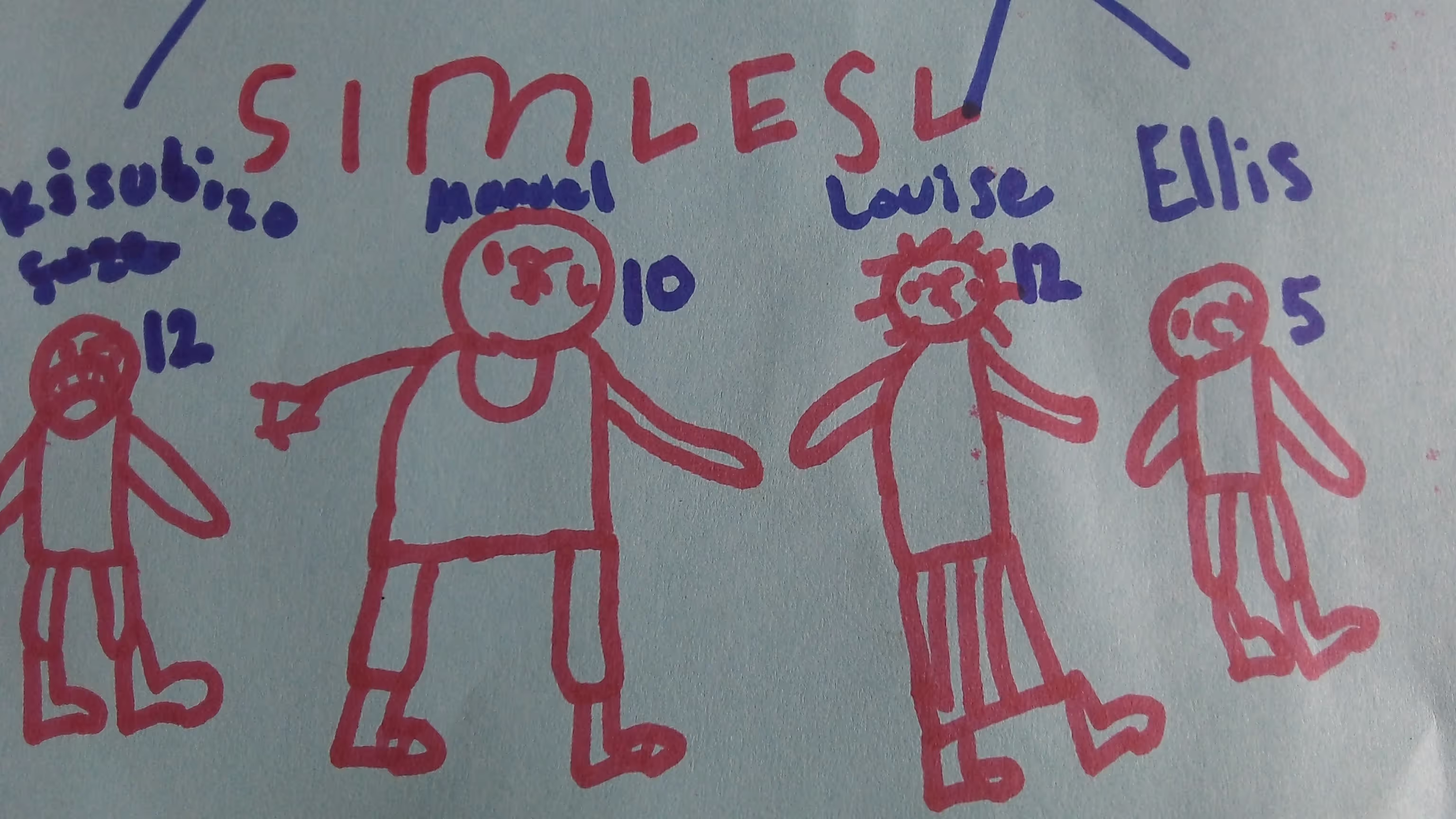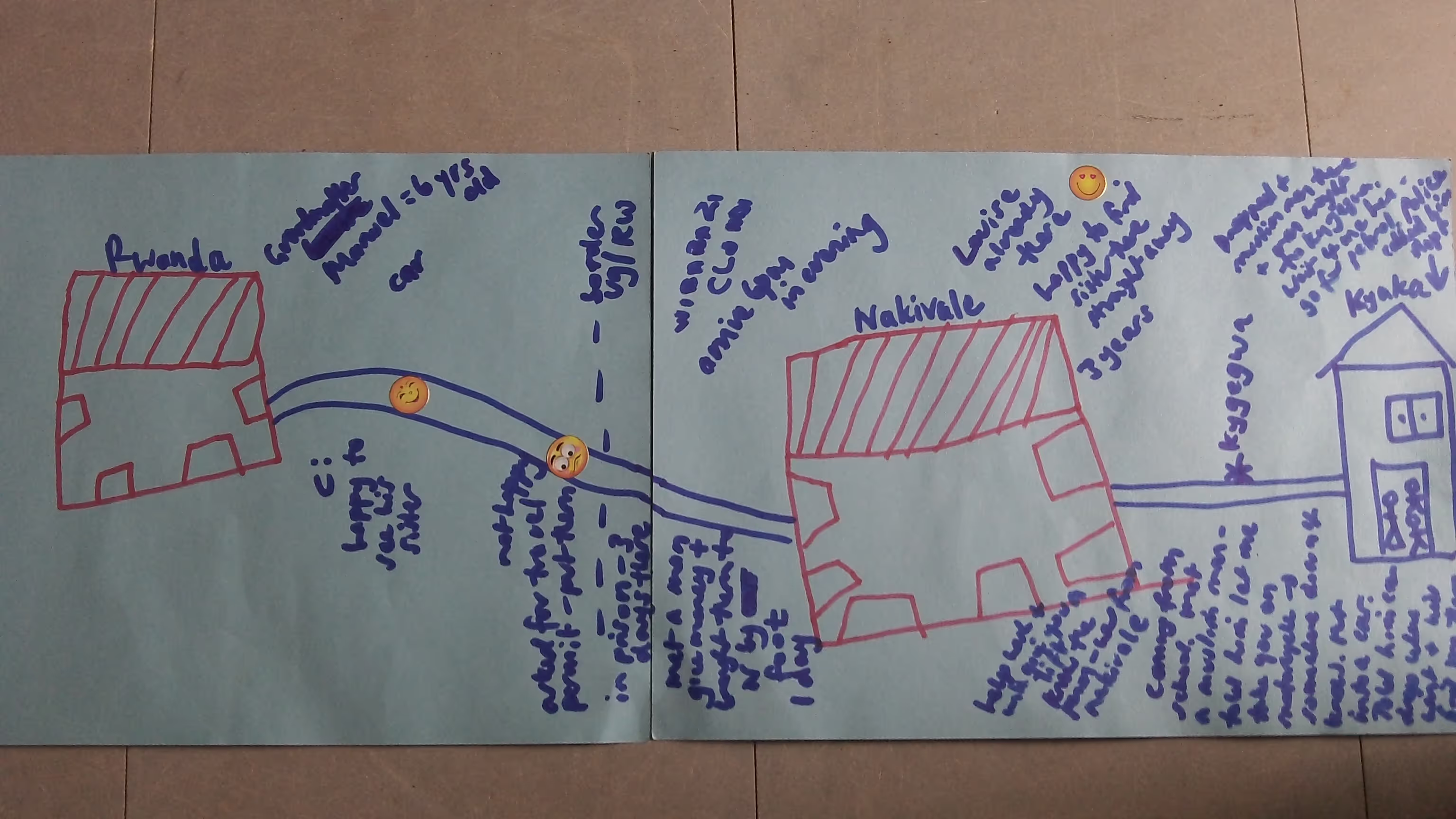Protection interviews with refugee children
07
September
2012
Type
Grantee insights
Area of funding
Humanitarian Innovation
Focus areas
No items found.
Year

Research in Kyaka II involved observation of a range of protection interviews with children, including both those attending with their families and unaccompanied and separated children. The protection interviews observed included Refugee Status Determination (RSD) as well as Registration and Best Interests Determination (BID) interviews. Refugee children and humanitarian practitioners were also asked for their views and opinions on these protection interviews in workshops and in interviews with the researcher.
The purpose of the RSD interview is to determine whether asylum seekers fall within the criteria for international refugee protection. It is therefore a core UNHCR protection function. Registration is the process of recording information on persons of concern with the aim of protecting and documenting them – it has been described as ‘the first step in the legal and physical protection of refugees’ and ‘the point from which all assistance and services flow.’
The BID is defined by UNHCR as ‘…the formal process with strict procedural safeguards designed to determine the child’s best interests for particularly important decisions affecting the child.’ All can be seen as critical decision-making points in the life of a refugee child.
Children in Kyaka II came up with a range of issues and concerns relating to their participation in protection interviews. Whilst Registration was viewed as a positive process and a route to a ration card, children also mentioned:
- hunger while waiting;
- distance travelled to interview;
- postponement and delay;
- language barrier and translators misunderstanding them;
- too many questions.
In relation to RSD interviews, children’s concerns included:
- fear of failure (for example in RSD interview);
- not being part of the interview (‘children are not participating words’);
- questions they cannot answer (‘they ask you what you don’t know’).
Practitioners interviewed had their own concerns about protection interviews with refugee children. They were concerned about protection interviews where the adult was the ‘principal applicant’ and the children did not contribute:
‘Children don’t give their views…and yet, children might be having more important information than adults…’
‘In some situations where BIDs are not needed…the child may witness something the parents may not…if we don’t sit down to talk to these children, we may miss that information.’
Some practitioners were also concerned about the lack of creativity in interviews and the environments that interviews with children might be conducted in.
In keeping with the focus on innovation in the refugee protection process, children and practitioners also shared their ideas for improvement and change. Children drew pictures of a more child friendly registration process, with food and shade for children waiting in line and space and resources for play (see photo 1).
Practitioners talked about play as an effective, professional tool that could be used to make interviews more child-friendly. As an example, drawing was used as a technique with younger children by the researcher to assist the gathering of important protection information on the child in both BID and RSD interviews (see photos 2 and 3). As shown in the last blog, a child-friendly interview room was created, using children’s drawings, blackboard paint and basic resources for play.
Good practice from elsewhere – for example child-friendly translation guidance from Save the Children – was used as part of training for UNHCR and GIZ translators.
Anna Skeels, PhD Student, CMPR, Swansea University
No items found.
Stay updated
Sign up for our newsletter to receive regular updates on resources, news, and insights like this. Don’t miss out on important information that can help you stay informed and engaged.
Explore Elrha
Learn more about our mission, the organisations we support, and the resources we provide to drive research and innovation in humanitarian response.





.png)